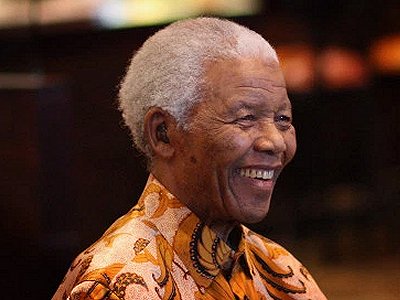
NO MORE HEROES
Ours may now be a post-heroic era, but the foundation of a good character which respects opponents should remain the basis of our politics
Even before his death, Nelson Mandela was hailed as the last great hero of the twentieth century. An epic century of suffering and change called for leaders who fitted its scale, though who constituted a hero depended on where you stood - remember both Stalin and Mao are still revered by many in their lands. Some transcended ideological parochialism, however, and Mandela was one such. It is a mistake to depict him as flawless, as so many eulogies sought to do, but he learned from his failings and expressed a grace and magnanimity which utterly disarmed his foes.
Will the twenty-first century produce other heroes like him? There are several countries which still have long marches to freedom to make, like North Korea, but the suppression of individual expression in such places is so effective that meaningful opposition leaders cannot emerge. Meanwhile, other nations with a lot of ground to make up, like China, have dangled tawdry compromises in front of its citizens that impede organised opposition: keep quiet and we’ll give you the chance to get rich. There are many places of conflict which are not going to relent soon, but so many of their leading players have bloody hands which cannot easily be washed clean. Fewer are inspired by the peaceable ethic of Mahatma Ghandi or Martin Luther King (Aung San Suu Kyi being a notable exception).
Among mature democracies there may be even less room for epic heroes because the larger battles have been fought and won or lost. Politics is cautious and managerial, despite the rhetoric, and anyone trying to play the hero is likely to be ridiculed for their pretences. The personal narratives have also changed. The components of Mandela’s allure were the sacrifices he made and the suffering he endured. There is no doubting the integrity and commitment of a politician to their cause when they have spent decades imprisoned in harsh conditions. There is an echo of the suffering servant which appeals to nations with a Christian memory, like South Africa. No-one can engineer such a story and although several western politicians have histories of personal suffering, they are private and random, rather than public and intentional.
Of more concern is the way politicians are drawn from ever decreasing circles, some of which are rich and protected. Only wealthy men and women tend to succeed in US politics because of the money it takes to secure power, meaning there is some justification in the common American lament that politicians do not understand ordinary people; a similar refrain can be heard in the UK. While money is not the arbiter of political advancement in quite the same way, the political classes seem to be drawn from smaller cohorts than before, despite our meritocratic pretensions. There is nothing inherently wrong in originating from elites, but a greater risk is run of not understanding other circumstances and – just as pertinently – being believed to be out of touch.
The open season on national politicians should nevertheless be tempered by an honest appraisal of the double standards of the public and the media. We filter modern politics relentlessly through the prism of personal ambition, as if only this could drive someone to offer public service. Such is our distrust of public figures and the institutions they represent that we assume personal advancement is the only motivation and that all are on the make. The hypocrisy of believing this of others but not applying similar standards of probity to ourselves ensures our contempt continues unabated. We invalidate Jesus’ stern warnings on hypocrisy by denying we have standards of our own to meet.
That this may be a post-heroic era is beyond our control; that we might treat others with respect and make the effort to understand where they are coming from remains a common courtesy and one on which Mandela himself built his reputation.
POPULAR ARTICLES

Obama's Covert Wars
The use of drones is going to change warfare out of all recognition in the next decades.

Through A Glass Starkly
Images of traumatic incidents caught on mobile phone can be put to remarkable effect.

What Are British Values?
Is there a British identity and if so, what has shaped the values and institutions that form it?


